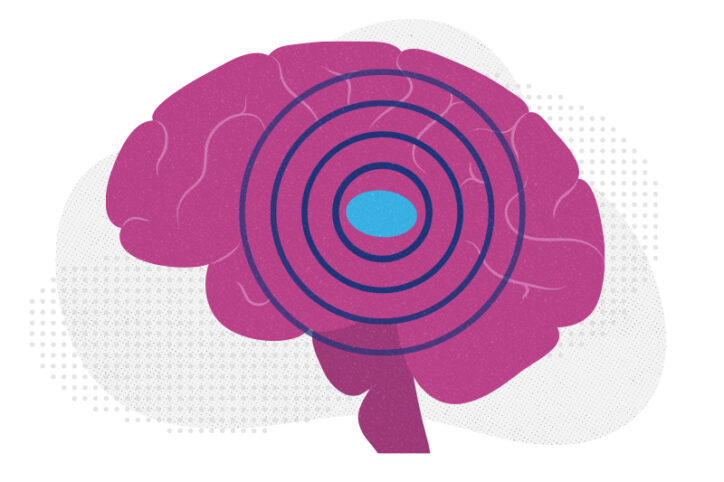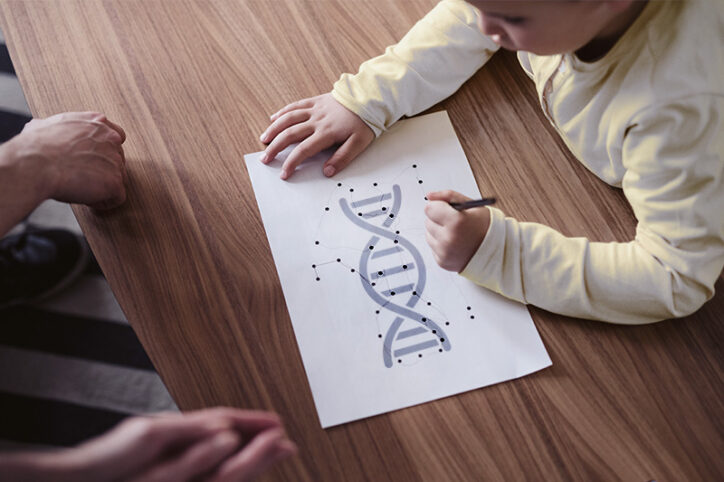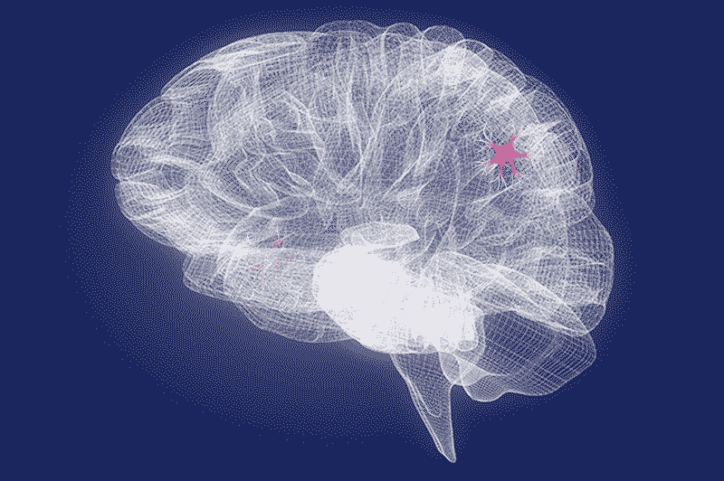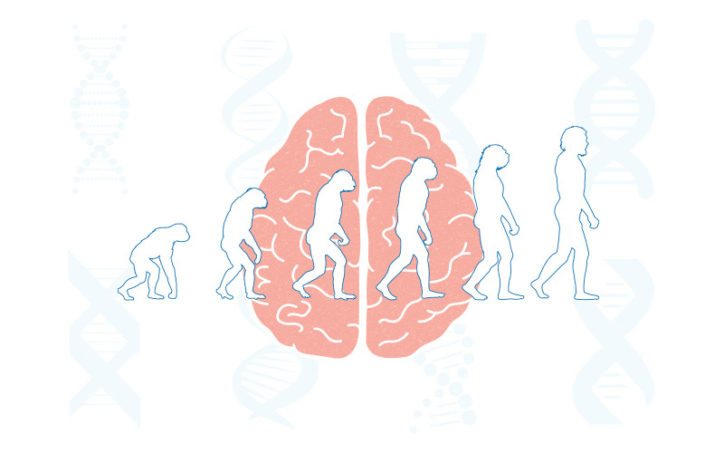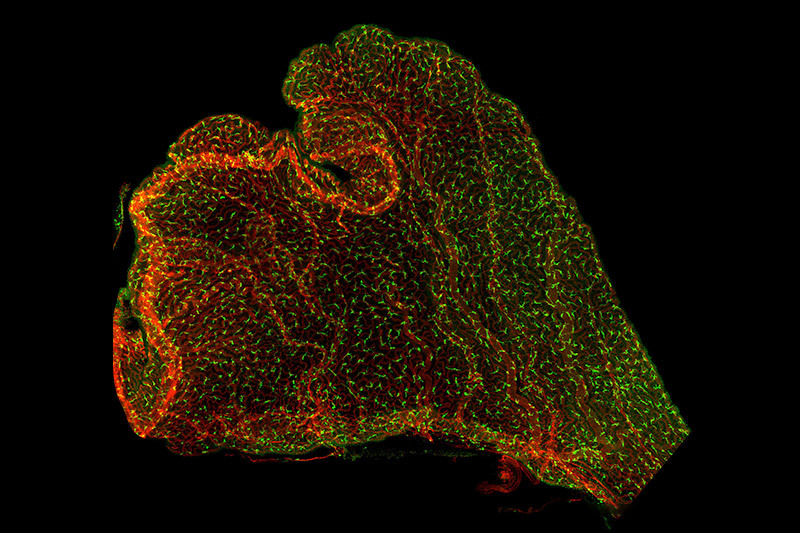Archive for developmental medicine
The thalamus: A potential therapeutic target for neurodevelopmental disorders
Years ago, as a neurology resident, Chinfei Chen, MD, PhD, cared for a 20-year-old woman who had experienced a very small stroke, affecting only the thalamus. “It was so tiny that she wouldn’t have noticed any symptoms had the stroke been in any other area of the brain,” says Chen, who is now an investigator ... Read More about The thalamus: A potential therapeutic target for neurodevelopmental disorders
Tagged: autism, developmental medicine, neurology, neuroscience
Delving into the causes of attention deficits: Childhood adversity, lost sleep, and dopamine
New research on the effects of adversity in childhood ties together stress, sleep loss, and attention deficits later in life. It also uncovers some of the underlying brain biology and potential treatment approaches — while revealing a puzzling sex-specific effect. The lab of Takao Hensch, PhD, has long studied time windows during development — commonly ... Read More about Delving into the causes of attention deficits: Childhood adversity, lost sleep, and dopamine
Tagged: ADHD, developmental medicine, neuroscience, sleep
Medical care for youth with neurodevelopmental disabilities: A call for change
According to national data, one in six children has a neurodevelopmental disability (NDD) such as autism, intellectual disability, or ADHD. Their medical care is often inadequate, sometimes leaving conditions untreated and neglecting preventive care — with poorer outcomes as the result. Clinicians may not take time to communicate with children, teens, and young adults with ... Read More about Medical care for youth with neurodevelopmental disabilities: A call for change
Could ADHD be diagnosed genetically?
Despite it being very common, ADHD is often missed until a child reaches age 7 or older. By that time, they have likely been struggling socially and in school. Could early genetic testing be part of the solution? Anne Arnett, PhD, in partnership with Ryan Doan, PhD, at Boston Children’s Hospital, set out to see ... Read More about Could ADHD be diagnosed genetically?
Tagged: ADHD, developmental medicine, genetics and genomics, neurology
Toddlers diagnosed with autism should be reevaluated over time
Parents whose child has been diagnosed with autism spectrum disorder (ASD) may feel it’s a lifelong label. But a new study offers hope: It found that 37 percent of children diagnosed as toddlers no longer met criteria for autism when they reached early school age. Findings were published October 2 in JAMA Pediatrics. Study leader ... Read More about Toddlers diagnosed with autism should be reevaluated over time
Treating brain ‘hotspots’ and networks to address autism, aggression, and more
What if doctors could break down conditions like autism into their key symptoms, map these symptoms to “hotspots” in the brain, and then treat those areas directly with brain stimulation? If it bears out, such an approach could turn the care of neurologic and developmental disorders on its head, focusing on symptoms that are shared ... Read More about Treating brain ‘hotspots’ and networks to address autism, aggression, and more
Babies and screen time: New research calls for caution
If you’re a parent, you’ve probably been there. You have a baby howling for attention, but you need to cook dinner or get a sibling to take a much-needed nap. Baby TV shows, touch tablets, and digital phone toys can feel like lifesavers in keeping an active infant calm and contained while juggling what life ... Read More about Babies and screen time: New research calls for caution
Tagged: developmental medicine, eeg, media, neuroscience, primary care, well child care
Rethinking the need for ADOS testing to diagnose autism in young children
The Autism Diagnostic Observation Schedule, or ADOS testing, was developed in the 1980s as a tool for autism research. Through a series of semi-structured observations, trained evaluators assess children’s communication skills, social interaction, and imaginative use of materials. But over time, the ADOS has come to be considered the gold standard for a clinical diagnosis ... Read More about Rethinking the need for ADOS testing to diagnose autism in young children
‘Human accelerated regions’: How they make our brains uniquely human
Starting when humans diverged from chimpanzees some 5 to 6 million years ago, we’ve evolved in our uniquely human fashion thanks to changes in our genome. And certain parts of the human genome, known as human accelerated regions or HARs, have evolved especially rapidly. Intriguing new work led by Christopher Walsh, MD, PhD, of Boston ... Read More about ‘Human accelerated regions’: How they make our brains uniquely human
The tiny choroid plexus protects the prenatal brain — but may also pass on inflammation from the mother
Floating in fluid deep in the brain are small, little-understood fronds of tissue. Two new studies reveal that these miniature organs are a hotbed of immune system activity. This activity may protect the developing brain from infections and other insults — but may also contribute to neurodevelopmental disorders like autism. Key takeaway This pioneering work ... Read More about The tiny choroid plexus protects the prenatal brain — but may also pass on inflammation from the mother


